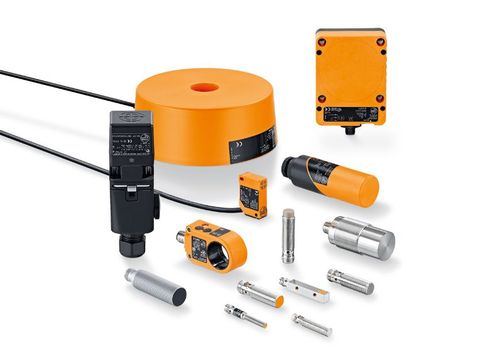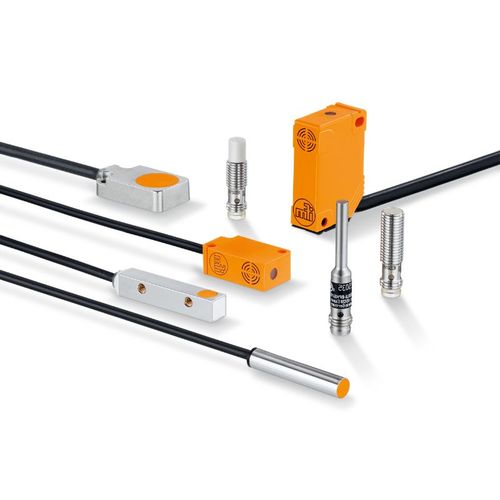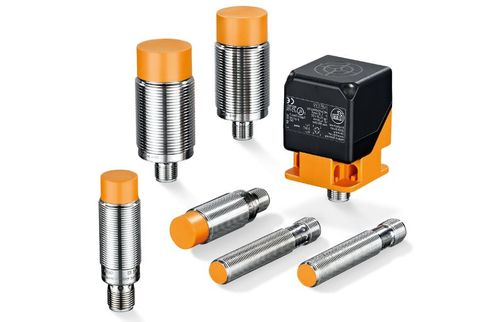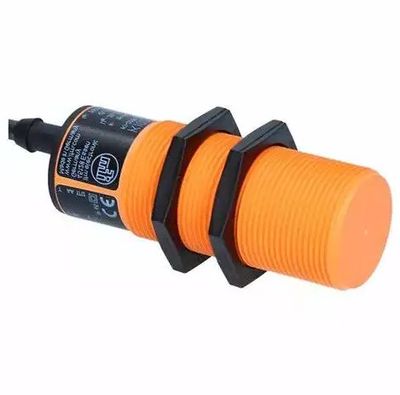IFM Inductive Sensor: the main types
27.07.2022
In modern machines and high-precision equipment, where it is important to control the position of structural elements, an inductive sensor is installed. What is IFM inductive proximity sensor used for and what types of them, we will consider in this article.
What does an IFM inductive sensor do?
The inductive sensor allows you to detect the presence of an object without having to touch it. Unlike other sensors, IFM proximity switches can only detect metals and are insensitive to other materials, which increases their immunity to interference. Even if a foreign object gets into the sensor sensitivity zone, the false alarm will be excluded.
The principle of operation of inductive sensors is based on a change in the parameters of the magnetic field of an inductor coil, into which a metal object enters. An oscillation circuit inside the instrument generates an electromagnetic field. Since induced currents occur on it, the oscillations are reduced, which is instantly read by the sensor.
Main characteristics:
- Applies to metal objects only.
- Quite a small distance to the object: up to 80 mm.
- Relatively low price.
- Long service life.
- Resistance to adverse environmental conditions.
- High measurement speed.
 In order to choose the right inductive sensor, it is necessary to determine the required speed of the process being measured, reliability, and acceptable cost. You also need to know what will be the distance between the object and the sensor, as well as the shape of the object.
In order to choose the right inductive sensor, it is necessary to determine the required speed of the process being measured, reliability, and acceptable cost. You also need to know what will be the distance between the object and the sensor, as well as the shape of the object.
What are the different types of IFM inductive sensors?
Let's take a look at the IFM inductive sensor catalogue:
- Standard devices. The series includes a large number of typical industrial automation devices. Mostly represented by sensors in the basic version.
- High pressure resistant. They are used in high-pressure environments, for example, diagnostics of the end positions of hydraulic cylinders.
- Two-wire devices. Supplied with plug/cable connection, the working area within 2-15 mm.
- Explosion-proof series. Provide automation in environments with combustible and explosive components. Built-in explosion protection prevents sparks.

- Resistant to welding and magnetic fields. The devices have enhanced protection against electromagnetic fields and welding sparks.
- Tubular, ring devices. Highly specialized series are used in assembly plants and lines that manufacture small parts. Can be mounted on hoses, and plastic pipes. They have increased sensitivity, so they accurately determine the smallest elements.
- Heat resistant sensors. The devices can operate at extreme temperatures up to +120+230°C. Widely used in metalworking and metallurgical production. They work in interaction with technical liquids. Special versions withstand temperatures up to +230°C and are used for positioning steel ladles.
- Sensors for applications with increased hygiene standards. Designed for the needs of the food, cosmetics, pharmacology, and medicine industries, where there are special requirements for the materials and raw materials from which the products are made.
- Sensors with analog output. Devices with high measurement accuracy, their value is determined by the distance to the metal object. Demanded in many industries as a reliable and affordable solution for detecting small distance movements of the tailstock of the machine, metal tape, or controlling the shear of structural elements. There are block and cylindrical versions, a series in a plastic case. The working area of the devices is up to 60 mm, the measurement accuracy is up to 10 microns.
- Position measurement sensors. Compared to other types of devices, these sensors are designed to control the displacement of an object along its own sensitive surface. Reliability of measurements is provided by a metal marker. Its dimensions are prescribed in the instructions. The maximum travel distance is up to 133 mm, the ultimate measurement
 accuracy is up to 100 microns.
accuracy is up to 100 microns.
Where are IFM inductive sensors used?
Inductive sensors are known for their reliability and safety in harsh environments. This makes them the best choice for the military, aerospace, railroad, food, and heavy industries. Inductive sensors are also used in machine tools, machines for the textile industry, the automotive industry, assembly lines, etc. They are used to detect metal parts in difficult environments and where fast-moving parts need to be inspected.
Eltra Trade s.r.o. can give you the best price for IFM Efector Inductive Proximity Sensors and Switches. Take at a look at our full ifm inductive sensor catalogue.